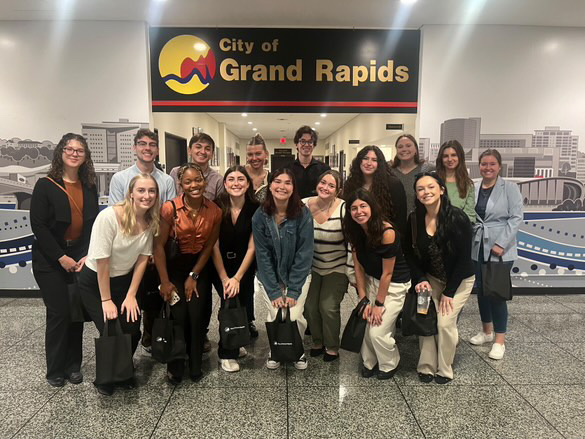What to take away from Michigan’s fight for water
Apr 12, 2018
Living in the Great Lakes State has made many of us take water for granted. We’re surrounded by a shocking 21 percent of the Earth’s fresh water, which means we never have to deal with shortages unlike the rest of the world and even the rest of the country. In the last week or so, many of the residents in Michigan have been protesting the increase in the amount of water allowed to be pumped by Nestle because they are worried about its consequences. Those people are right to be worried, but there is an even bigger problem at hand.
The U.S. is often thought to be one of the most pioneering and advanced countries in the world, but we’re still using water that is far from clean. We saw it in Flint and Rockford, but we can also see it reflected in various health problems around the world. Nearly two million people die every year from water-borne diseases, and we’re doing very little to treat the problem.
A lot of our water usage is put into agriculture, but with that come pesticides and chemicals. For too long we have been ignorant of the effects of these additives. To this day we use Atrazine, a chemical produced in Switzerland but banned in the entire European Union for its proven harmful effects.
The documentary “Flow,” which is an acronym that means “For Love of Water,” discusses this very problem. More than that, “Flow” also showcases just how problematic bottled water is, which connects back to the current discussion of Nestle’s allocation of Great Lakes water.
Bottled water is quite frankly a waste of money. It is a waste of plastic, of resources and of time. Many people drink bottled water because they believe it is cleaner than well or tap water, but that is simply not true. In fact, some bottled water is actually tap water, and much of the rest of it is less clean than tap water. It has less regulations and no real agency or organization to monitor its process. Worst than that, if the entire world would just stop drinking bottled water and put that money toward clean and accessible water for the planet, we would actually have a surplus of money.
The last thing we need to do is give more power to a huge brand like Nestle. We certainly don’t need their bottled water when we can get our very own. It is just unethical to allow Nestle to strengthen their grasp on the Great Lakes, not only because our people don’t want it, but also because their corporatization of water is adversely affecting people worldwide.
Water is a free natural resource, and it is a necessity of life. We’ve been taking it for granted for far too long. It is absurd to think that there will be no repercussions for continuing to sell our water off to big corporations. They will continue to get richer, and we will continue to get poorer both financially and environmentally. The people of Michigan are right to be upset with Nestle’s presence, but the global water crisis is far bigger than just our state. These problems have been hitting pretty close to home, so we should all use this as a catalyst to push for change around the world.






















